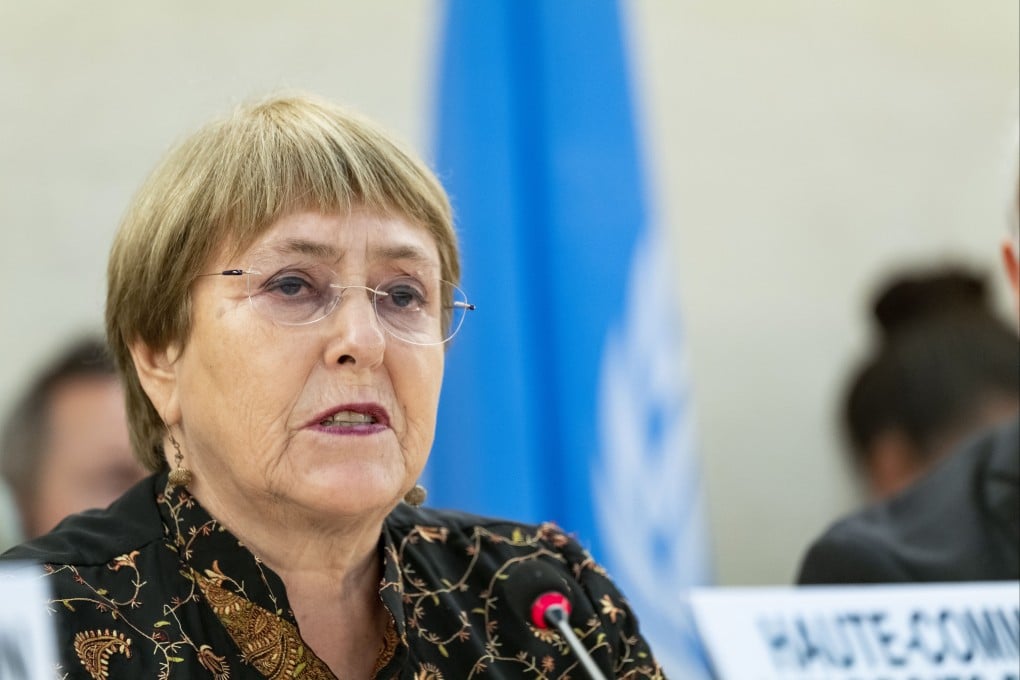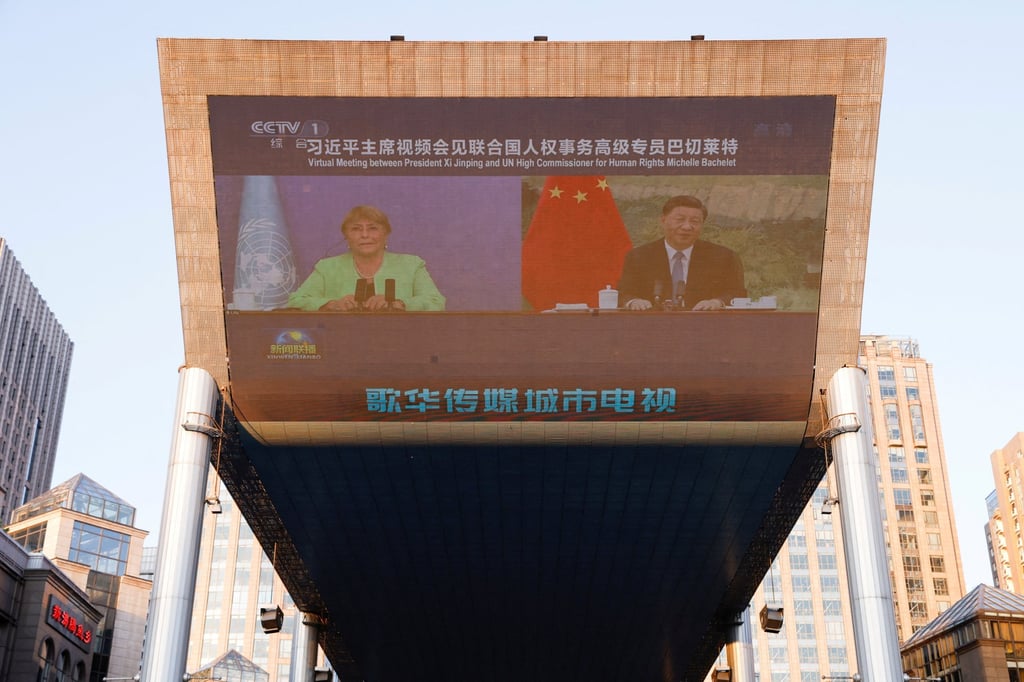UN human rights chief Bachelet says no to second term, ‘no relationship’ to China trip
- Michelle Bachelet, 70, says she will spend more time with family in Chile; some diplomats expected her to stay on when 4-year term ends in August
- She was criticised by rights groups and some governments over her visit last month to China; they said she did not do enough to act against alleged abuses against Uygurs in western region of Xinjiang

The United Nations human rights chief, Michelle Bachelet, said on Monday that she would not seek a second term for personal reasons, refuting speculation that it was a decision linked to blowback over her trip to China last month.
Bachelet has faced mounting criticism for not speaking out more forcefully against allegations of widespread rights abuses in some countries, most notably in China.
The 70-year-old was criticised by rights groups as well as some Western governments, including the United States, who said the conditions Chinese authorities imposed on her visit did not enable a complete and independent assessment of the rights environment.

“As my term as High Commissioner draws to a close, this Council’s milestone fiftieth session will be the last which I brief,” she said in a surprise announcement at the end of a wide-ranging speech to the Geneva-based Human Rights Council.
Later, she said the decision was not related to her China trip, adding that she intended to return to Chile and spend time with her family.
“Two months ago, before even going to China, I made a decision and I informed my boss, the Secretary-General (Antonio Guterres). So it has no relationship,” she told reporters.
Some diplomats said they had expected Bachelet, a 70-year-old former president of Chile, to stay on after her four-year term expires in August. There was murmuring in the Geneva Council room when she made the announcement.